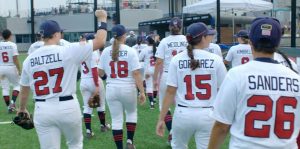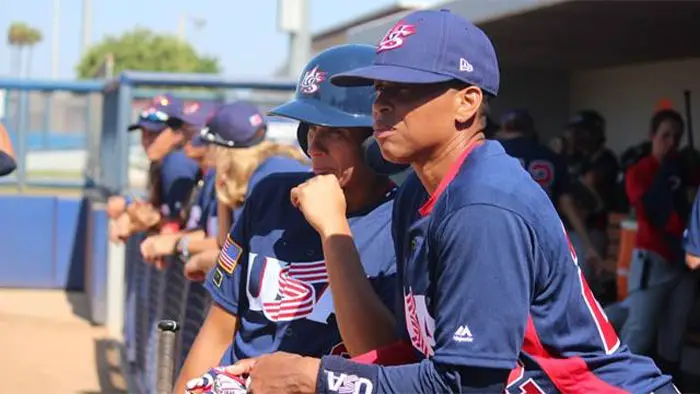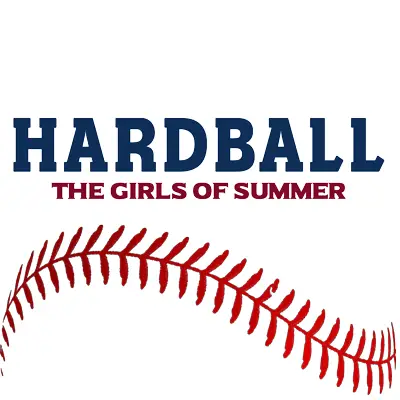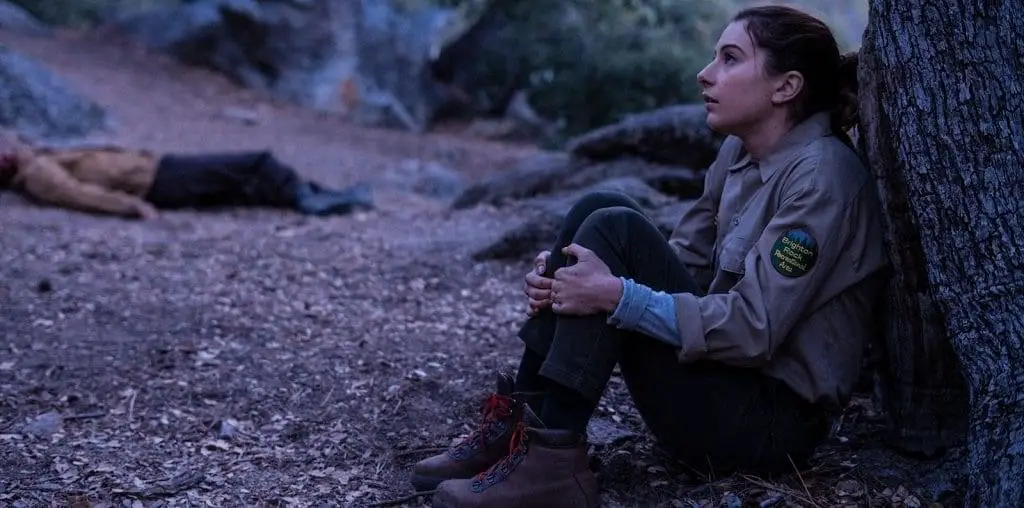
Did you know there is a professional women’s baseball league? It’s true in the form of a biannual event, the Women’s Baseball World Cup. It draws from female athletes from over a dozen countries around the world, all except the United States. After watching Matthew Temple’s documentary Hardball: The Girls of Summer, I was surprised I never knew about women’s professional baseball and never knew they used to train just a few miles from my home at Cal State Fullerton.

“…a professional women’s baseball league?…It exists in over a dozen countries around the world, except the United States.”
Hardball: The Girls of Summer makes a convincing case for the need for women’s baseball in the U.S. First when you take your daughter to baseball games, you be surprised by how they may just want to play the game. Why? Because it’s fun. You’d also be surprised, who quickly we as parents shut down that “nonsense.” Temple shows that women’s baseball didn’t end with the All-American Girls Professional Baseball League as portrayed in A League of Their Own. It ended when we and the powers-that-be just didn’t give a damn.
In 1973, girls won the right in court to play little league baseball, which led to a creative loophole…Women’s Softball. And now there’s something for the men and the women (we’re so smart). While softball looks a lot like baseball, it’s just not the same. Hardball spotlights a few of the growing number of women, who insist on playing America’s pastime, including the members of the Sonoma Stompers Kelsie Whitmore and Stacy Piagno, and veteran player, Tamara Holmes. Their love of baseball started as children, and they fought their way to play and find some semblance of acceptance in Little League, high school, college, and the majors. As you can imagine, the road of skepticism, bullying, and outrage, was not easy.

"…"...a large contingent of women who want to play the game...""


The movie made me angry and disappointed. As a film, the message was disjointed – it certainly seemed to promote a women’s baseball league, but didn’t make a strong case for it. It women are already good enough to play professionally (clearly they are), then why not just focus on the co-ed teams that already exist and make them more accepting of women? We got rid of the “Negro Leagues” because we decided it was wrong to segregate Black and White players; we complain that softball was promoted to distract women who want to play baseball by creating a separate league; why create more segregation instead of focusing on integration? If more female ball players had equal opportunities and encouragement at younger ages, we wouldn’t need a separate league for women. It is as if we’ve just given up on changing men by insisting on equality (as noted, there were plenty of examples of sexism in the film).
The film quotes Dr. Justine Seigel, who says, “if we tell girls that they can’t play baseball, what else will we tell them that they can’t do?” I think a follow up statement would be, “if we tell girls that they can’t play with boys (and vice versa), what else will they think they can’t do together? Doesn’t having girls of all capabilities on a co-ed team (with boys who also have relative strengths) promote future adults who know to respect co-workers, neighbors, and colleagues of all genders? I have had coaches who have asked me why I don’t play with the girls (softball), but never another player. I think that girls who play baseball do more than change sports for women, they change the way that the boys who play with them think about girls.
I was also appalled to learn through this film that the professional women’s baseball players only play seven innings, that they have a different bat, and that their field is smaller. I am a girl who has played baseball on co-ed teams all my life. I don’t want to play a “dumbed down” sport. When my mother and grandmother set records for the marathons that they ran, they didn’t run shorter distances than the men. The fewer innings just doesn’t make sense – plenty of scientific evidence suggests that women have MORE endurance than men, not less.
The audience at the theater was very enthusiastic about the film’s message. As a young player, I was both impressed with the women athletes who were profiled and deeply disappointed by the sexism that the audience celebrated. I support having more women in this sport, but feel very disappointed that so many who should have the same goal are in fact working hard toward options that would give me different (and in my opinion less) access to the game I love. In my history classes, we learned that “separate but equal” was, in fact, anything but equal.
It is not a professional baseball league. Buy the movie in iTunes to get the skinny on Girls and Women’s Baseball!
It is NOT true that womens professional baseball leagues exist in dozens of countries. The only professional league is in Japan started in 2006. About 15 countries have National women’s baseball teams, but these aren’t professional leagues. Australia is developing a womens league, Venezuela announced one in 2016, but then their country imploded. Facts matter.